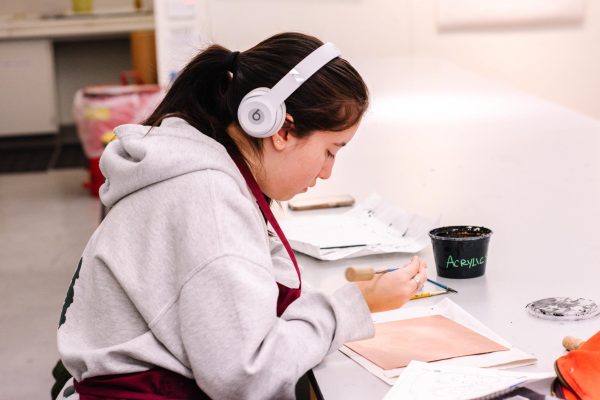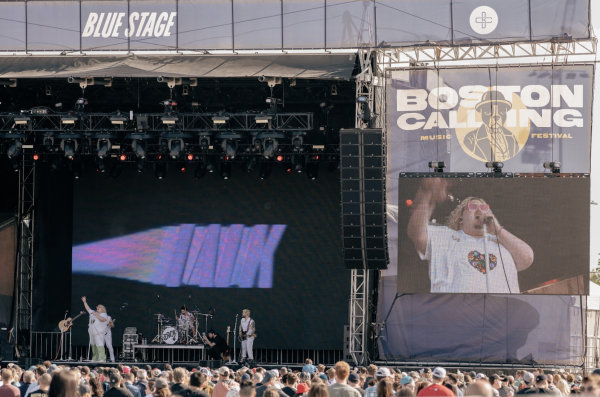Advice with the Arts Editor: The reality of mental illness
A student takes a stroll by the harbor, to the rhythm of their favorite music. Photo by Saichand Chowdary (He/Him) / Mass Media Contributor.
February 17, 2023
Winter affects mental health for many of us, but I didn’t quite realize how much it affected me until last month. As someone with mental illness year-round, it’s hard to define a pattern between ups and downs. After several days of below freezing temperatures, the warm days hit harder than I expected. I was visibly happier and more motivated than I had been in weeks.
So when the warm weather came, I grabbed my iced matcha from Starbucks and suddenly all of my problems were gone—until they weren’t. The clarity didn’t last very long and reality came crashing down by the end of the day. By reality, I mean my anxiety hit, my headphones went on and I played Phoebe Bridgers on repeat until I went to bed.
I’ve been dealing with mental health issues my whole life. At 10 years old, my parents put me in therapy and I’ve been going weekly since. Because I’ve been with this for so long, you’d think I would have a grasp on how to handle my struggles, but most of the time I have absolutely no idea what I am doing.
It took five years after I started going to therapy to get a diagnosis. When I was finally able to put a name to my problems, it was like everything just fell into place. I was so relieved because I thought I would finally find a solution—something that was the perfect fit to make my life normal.
Another five years later, I am still in therapy with the same diagnosis, but my symptoms have manifested in completely different ways. As I grew up and moved through different stages in life, my mental health evolved with me. That makes sense in hindsight, but I hate change so it scared me.
A lot of people talk about having mental illness, but what isn’t really talked about is that there is no quick fix. There is no magic medication that will fix all of your problems; believe me, I’ve tried more than I can count. Of course, they help the symptoms and make your life better, but nothing can completely eradicate it. There is no “end” like I hoped for at 15. It’s a constant battle.
This is a common feeling amongst people struggling with mental health issues. You can feel stuck or hopeless, and all that is really offered to help cope is exercise or mindfulness. While yes, these are both beneficial, they don’t make the symptoms completely go away.
What I find helpful during these times is remembering that while some days really suck, there are always really great ones on the other side. You just have to push through those harder times by doing anything to relax and take your mind off your problems. This can literally just be watching Netflix or going on TikTok.
As I mentioned before, my go-to is putting on my headphones and listening to Phoebe Bridgers. I also find a game to play on my phone while listening so I have something to focus on. On good days, prepare meals and throw them in the freezer, so on a bad day you can just pop it in the microwave.
If Instagram or TikTok is making you feel worse, just delete them. You don’t have to keep the apps off your phone forever, but just until you feel better. Some days it’s going to be hard to get out of bed, and that’s okay. It’s normal and it’s completely justified. On those days, don’t set expectations for yourself. If you can’t leave your bed, it doesn’t make sense to be hard on yourself about other responsibilities. What is most important is that you get through this rough day so you can move on to better days that will inevitably come.






























































